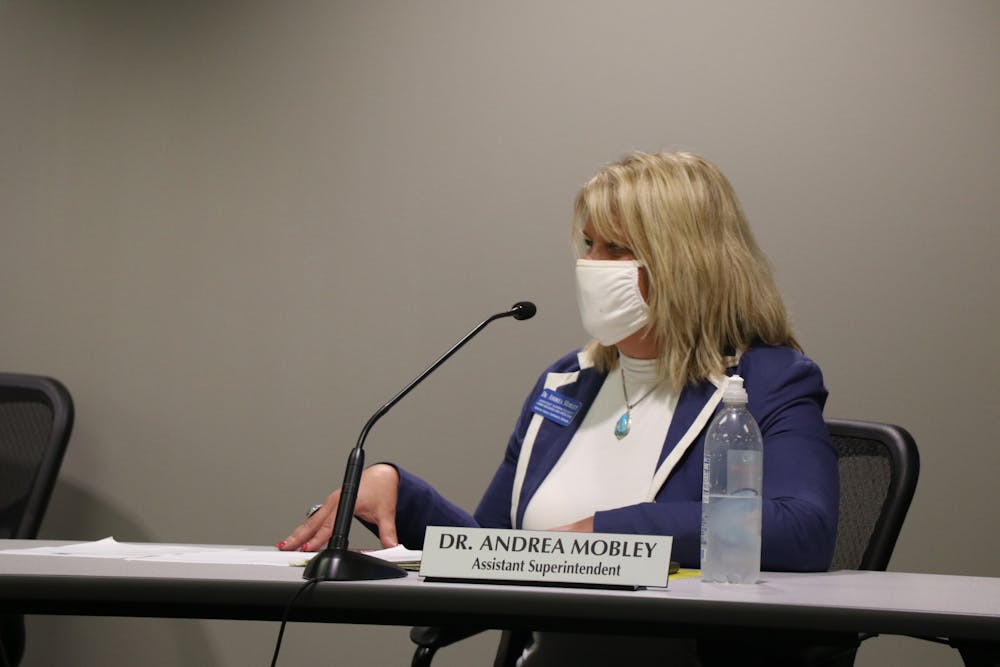Monroe County residents will be faced with an additional question when casting their votes Nov. 8 — should the property tax for homeowners and businesses increase for the next eight years to fund the Monroe County Community School Corporation?
MCCSC voted June 28 to place a referendum on the 2022 ballot. As November draws nearer, here’s everything you need to know:
What is a referendum?
A referendum allows the public to directly vote on an issue, meaning the popular vote decides the outcome rather than elected representatives. In this case, Monroe County voters will decide whether they want to increase their property taxes to bolster MCCSC funding.
Is this a new concept for MCCSC?
Referenda are not new to MCCSC. In 2010, voters first approved a $7.3 million operating levy. In 2016, they renewed the same levy. The operating levy will expire this year.
Instead of asking for a renewal, MCCSC is taking a different approach by requesting a property tax rate. Stagnant levy amounts fail to account for inflation, something that cost the school corporation millions considering the $7.3 million approved in 2010 would be worth $9.5 million today, according to the MCCSC referendum webpage. The fund’s inability to adjust to inflation means the $7.3 million is stretched far thinner now than it was in 2010, with 93% of current referendum dollars going solely to staff salaries. If MCCSC asked for a set property tax rate in 2010, the corporation would have collected an additional $9 million across the past 12 years.
Why does MCCSC say it needs more funding?
Without a new referendum, MCCSC said its cash balance will dip below zero in the next two years.
According to the MCCSC referendum webpage, Monroe County school tax rates are the 8th lowest in the state. Indiana already ranks 4oth in the nation for public K-12 spending, according to an Education Data study.
Related: [Referendum to increase teacher salary on the ballot this November]
These conditions paired with the expiration of the operating levy would result in a “fiscal cliff” for MCCSC. A fiscal cliff could have a variety of consequences including frozen salaries and wages, making it difficult for MCCSC to attract educators amidst Indiana’s teacher shortage.
What will the referendum cost Monroe County residents?
The referendum will ask Monroe County residents to contribute 18.5 cents to MCCSC schools for every $100 of assessed property value. According to the MCCSC referendum webpage, this rate would mean the average Monroe County household would pay an additional $125 in property taxes each year, or approximately $10.40 per month.
However, the cost will be explained to voters in a more confusing manner on ballots.
State law requires school districts to state a referendum rate increase as a percentage. If the referendum passes, the maximum authorized Monroe County referendum rate would increase from 14 cents to 18.5 cents per $100. The ballot will list this as a 35.24% increase per residence and 34.09% increase per business property. MCCSC said this format punishes districts with low tax rates. For example, the MCCSC referendum webpage explains a 50-pound calf that gains 20 pounds experiences a 40% increase in weight, while a 200-pound calf that gains the same 20 pounds experiences just a 10% increase in weight.
Related: [MCCSC fills all teaching positions, but Indiana teachers face nationally low pay, public criticism]
In other words, school corporations with higher existing tax rates could ask for the same amount of money as MCCSC, but the ballot would display a lower percentage.
Where will the money go?
If the referendum passes, MCCSC said funds will be spent on teacher salaries, support staff wages and educational services. MCCSC plans to combat the statewide teacher shortage by using referendum dollars to offer a $4,500 raise to all teachers. Support staff such as instructional aides and paraprofessionals would see an increase in pay as well, with a planned $2.25 per hour wage increase. Altogether, 87% of referendum dollars are slated to go towards paying educators.
The remaining 13%, totaling $1.2 million per year, would be directed towards educational services such as special education services, performing arts programs, STEM programs and other special programming.
What happens if the referendum fails?
A rejected referendum would mean major budget cuts. According to the MCCSC referendum webpage, over 100 positions could be eliminated, and the remaining staff would experience stagnant pay. Non-competitive pay would likely make it difficult for the district to attract educators as the entire nation undergoes a dire teacher shortage. The rejection would impact students with reductions in funding to educational programs such as the performing arts, as well as increased class sizes due to layoffs.
CLARIFICATION: Property tax is a tax on assessed property value. The referendum will ask Monroe County residents to contribute 18.5 cents to MCCSC schools for every $100 of assessed property value.




